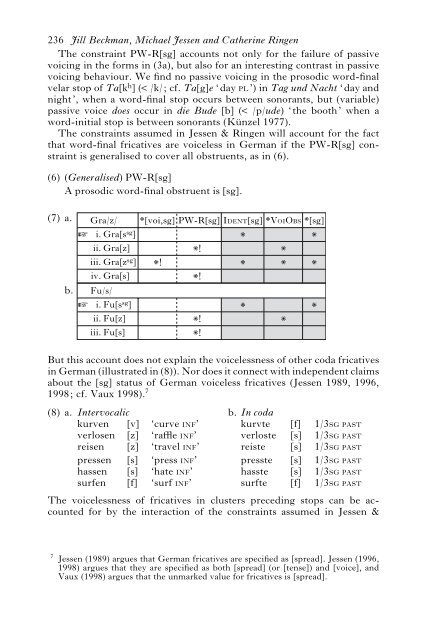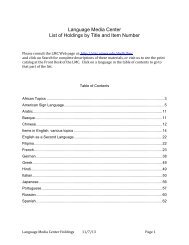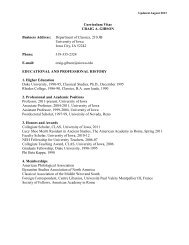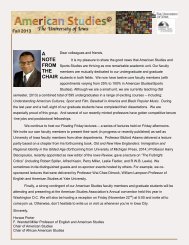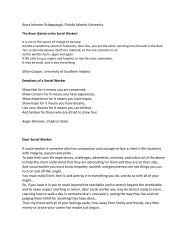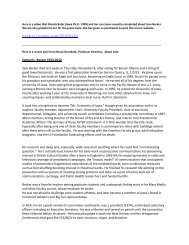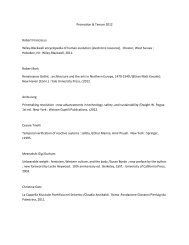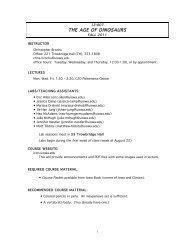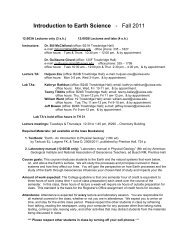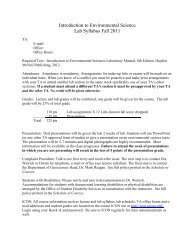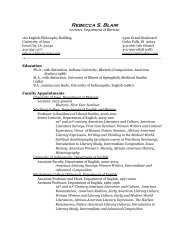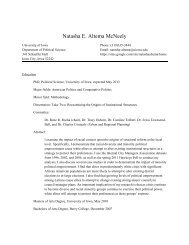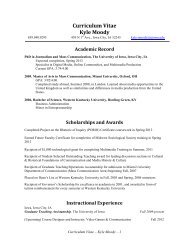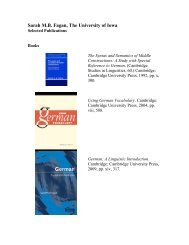German fricatives: coda devoicing or positional faithfulness?
German fricatives: coda devoicing or positional faithfulness?
German fricatives: coda devoicing or positional faithfulness?
You also want an ePaper? Increase the reach of your titles
YUMPU automatically turns print PDFs into web optimized ePapers that Google loves.
236 Jill Beckman, Michael Jessen and Catherine Ringen<br />
The constraint PW-R[sg] accounts not only f<strong>or</strong> the failure of passive<br />
voicing in the f<strong>or</strong>ms in (3a), but also f<strong>or</strong> an interesting contrast in passive<br />
voicing behaviour. We find no passive voicing in the prosodic w<strong>or</strong>d-final<br />
velar stop of Ta[kH] (< /k/; cf. Ta[g]e ‘day PL’) in Tag und Nacht ‘day and<br />
night’, when a w<strong>or</strong>d-final stop occurs between son<strong>or</strong>ants, but (variable)<br />
passive voice does occur in die Bude [b] (< /p/ude) ‘the booth’ when a<br />
w<strong>or</strong>d-initial stop is between son<strong>or</strong>ants (Künzel 1977).<br />
The constraints assumed in Jessen & Ringen will account f<strong>or</strong> the fact<br />
that w<strong>or</strong>d-final <strong>fricatives</strong> are voiceless in <strong>German</strong> if the PW-R[sg] constraint<br />
is generalised to cover all obstruents, as in (6).<br />
(6) (Generalised) PW-R[sg]<br />
A prosodic w<strong>or</strong>d-final obstruent is [sg].<br />
(7) a.<br />
b.<br />
<br />
Gra/z/<br />
i. Gra[ssg]<br />
*[voi,sg] PW-R[sg] Ident[sg] *VoiObs<br />
*<br />
ii. Gra[z]<br />
*!<br />
*<br />
iii. Gra[zsg] *!<br />
* *<br />
iv. Gra[s]<br />
*!<br />
Fu/s/<br />
i. Fu[ssg]<br />
ii. Fu[z]<br />
iii. Fu[s]<br />
*!<br />
*!<br />
*[sg]<br />
*<br />
*<br />
* *<br />
*<br />
But this account does not explain the voicelessness of other <strong>coda</strong> <strong>fricatives</strong><br />
in <strong>German</strong> (illustrated in (8)). N<strong>or</strong> does it connect with independent claims<br />
about the [sg] status of <strong>German</strong> voiceless <strong>fricatives</strong> (Jessen 1989, 1996,<br />
1998; cf. Vaux 1998).7<br />
(8) a. Intervocalic<br />
kurven [v]<br />
verlosen [z]<br />
reisen [z]<br />
pressen<br />
hassen<br />
surfen<br />
[s]<br />
[s]<br />
[f]<br />
‘curve inf’<br />
‘ra∏e inf’<br />
‘travel inf’<br />
‘press inf’<br />
‘hate inf’<br />
‘surf inf’<br />
b. In <strong>coda</strong><br />
kurvte<br />
verloste<br />
reiste<br />
presste<br />
hasste<br />
surfte<br />
[f]<br />
[s]<br />
[s]<br />
[s]<br />
[s]<br />
[f]<br />
1/3sg past<br />
1/3sg past<br />
1/3sg past<br />
1/3sg past<br />
1/3sg past<br />
1/3sg past<br />
The voicelessness of <strong>fricatives</strong> in clusters preceding stops can be accounted<br />
f<strong>or</strong> by the interaction of the constraints assumed in Jessen &<br />
7 Jessen (1989) argues that <strong>German</strong> <strong>fricatives</strong> are specified as [spread]. Jessen (1996,<br />
1998) argues that they are specified as both [spread] (<strong>or</strong> [tense]) and [voice], and<br />
Vaux (1998) argues that the unmarked value f<strong>or</strong> <strong>fricatives</strong> is [spread].


